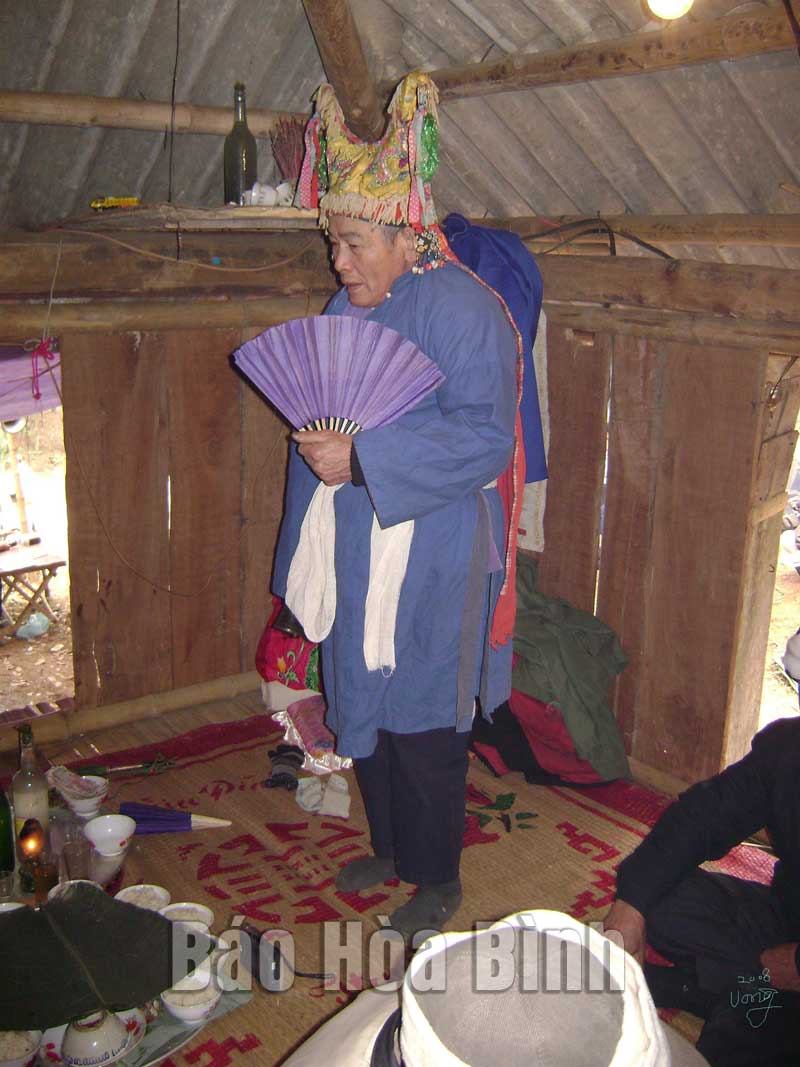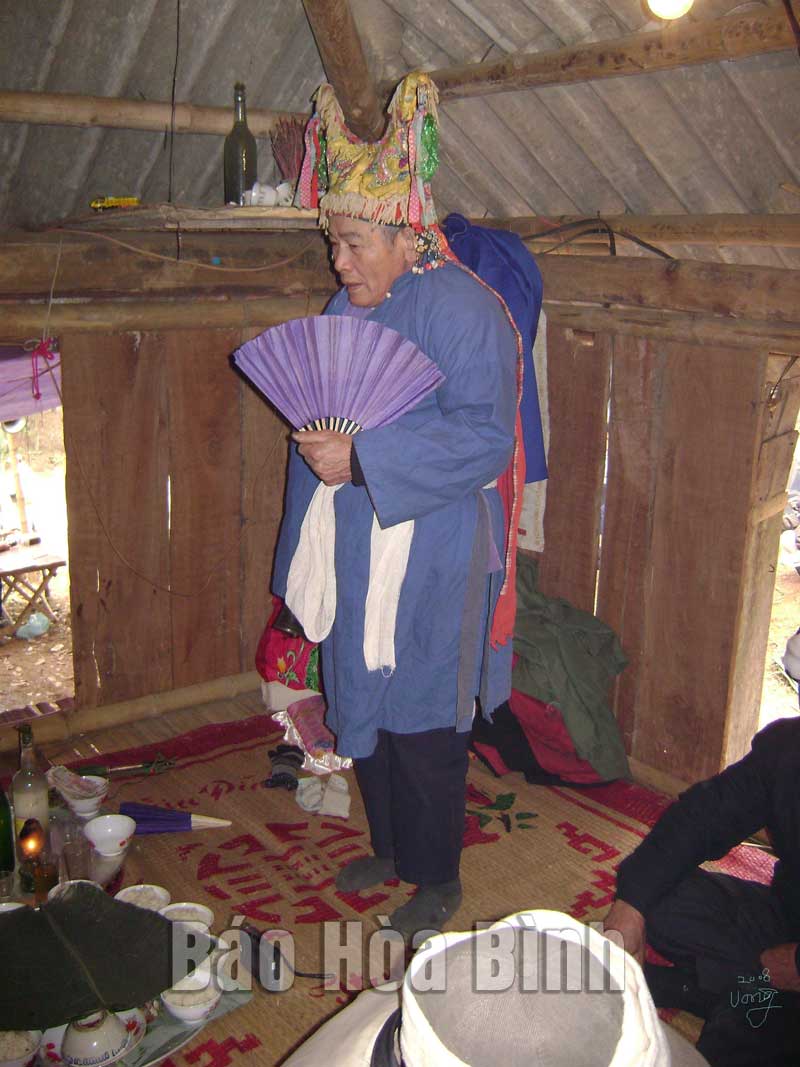
(HBO) – Preparations are being made to submit documents relating to "Mo Muong" to the United Nations Educational Scientific and Cultural Organisation to be added to the List of Intangible Cultural Heritage in Need of Urgent Safeguarding.

The late
sorcerer Bui Van Cu, residing in Bung village of Lac Son district’s Huong
Nhuong commune, performs a Mo ritual.
"Mo Muong" is a sacred ritual that has been used in funerals and some
rituals to pray for the good health of the Muong ethnic minority people.
"Mo Muong" is a job and also a performance practiced at funerals,
religious festivals, and life cycle rituals by the ethnic Muongsorcerers.
It consists of three main components namely Mo words, performing environment
and people who practice mo singing.
Mo words are divided into ‘cat Mo’ and ‘roong Mo’, similar to chapters in
literature. Each Mo chapter has its own theme and purposein a funeral
ritual.
Through the generations, "Mo Muong" has been passed down verbally in
the community.
Each person's life in different ethnic groups has rituals associated with the
human life cycle: birth, adulthood and marriage. For the Muong people,
thefuneral is the final ritual of each person's life which he/she only
enjoys when they die.
Funeral and "Mo Muong" will help deal with problems relating to
"procedures" for the dead before they are buried.
The Muong people also provide knowledge for the dead through storytelling which
includes stories about the birth of the universe, the birth of people, the
struggle for survival in the wild and knowledge of folk geography.
There are many collections of Mo,of which three main ones have been
published. The existence of various versions of Mo has helped expand the
heritage and spiritual life of the Muong people.
According to folk cultural specialists, "Mo Muong" is classified into
three categories:Mo Nghi Le(Ceremonial Mo), Mo Ke Chuyen (Story
Telling Mo) andMo Nhom(Observe Mo), in which ashaman plays an
important role.
The shaman knowstens of thousands of lines of Moby heart, as well
as many traditional rituals and customs.
In Muong society, the shaman is an intellectual and reputable person. The role
of the shaman is associated with the human life cycle: birth, old age, sickness
and death. Prayers are given for people’s health, good luck, peace,
happinessand prosperity./.
With an increasingly vibrant and widespread emulation movement aimed at building cultured residential areas and cultured families, Yen Thuy District has been making steady progress toward improving both the material and spiritual well-being of its people, while fostering a civilized, prosperous, beautiful, and progressive community.
Once lacking recreational spaces and community facilities, Residential Group 2 in Quynh Lam Ward (Hoa Binh City) has recently received attention for the construction of a new, spacious, and fully equipped cultural house. The project followed the model of state support combined with public contributions in both labor and funding.
The "All people unite to build cultural life" movement, which has been effectively integrated with Kim Boi district’s socio-economic development goals, is fostering a lively spirit of emulation across local residential areas, hamlets, villages, public agencies, and enterprises. In addition, through the initiative, traditional cultural values are being preserved and promoted, while community solidarity and mutual support in poverty reduction and economic development are being strengthened.
A working delegation of the Hoa Binh provincial People’s Committee led by its Permanent Vice Chairman Nguyen Van Toan on June 11 inspected the progress of a project to build the Mo Muong Cultural Heritage Conservation Space linked to tourism services in Hop Phong commune, Cao Phong district.
Born and growing in the heroic land of Muong Dong, Dinh Thi Kieu Dung, a resident in Bo town of Kim Boi district, in her childhood was nurtured by the sweet lullabies of her grandmother and mother. These melodies deeply imprinted on her soul, becoming an inseparable part of her love for her ethnic group's culture. For over 20 years, this love for her hometown has driven Dung to research, collect, and pass down the cultural values of the Muong people to future generations.
In the final days of May, the Ethnic Art Troupe of Hoa Binh Province organized performances to serve the people in remote, mountainous, and particularly disadvantaged areas within the province. These were not just ordinary artistic shows, but they were the meaningful journeys aimed at spreading cultural values, enhancing the spiritual life of the people and contributing to the preservation of ethnic minority cultural identities.



